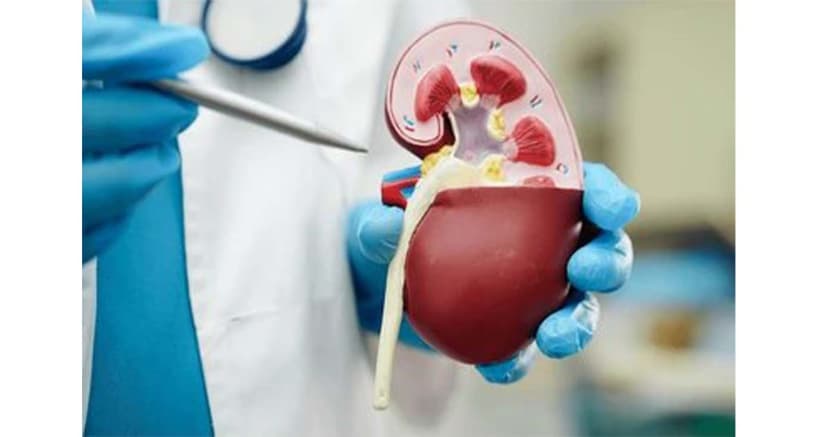Addressing common concerns and myths about intermittent fasting
By:

Apex Hospitals
15-01-2024 5 Min Read

In a world where diets come and go like fashion trends, there's one rebel breaking the mould, and it's not a crash diet; it's a lifestyle revolution. Say hello to intermittent fasting, the health trend that's turning mealtime into 'me time' and proving that sometimes, the best bites are the ones you wait for. As this revolutionary approach to eating gains popularity, it brings along a trail of myths and concerns that often overshadow its incredible potential.
So, buckle up, myth-busters and health enthusiasts! We're about to embark on a truth-revealing journey through intermittent fasting, dissecting common concerns and dispelling misconceptions that have lingered like stubborn shadows. It's time to separate fact from fiction, address the sceptics, and unveil the real story behind intermittent fasting. Get ready to redefine your relationship with food because the journey to a healthier you begins with unravelling the myths surrounding this transformative lifestyle!
What is intermittent fasting ?
There are several methods of intermittent fasting, but here are some of the most common ones:
1. The 16/8 method involves fasting for 16 hours and restricting your daily eating to an 8-hour window. For example, you might eat between noon and 8 p.m. and fast from 8 p.m. to noon the next day.
2. 5:2 diet: In this approach, you consume a regular diet five days a week and significantly reduce your calorie intake (usually around 500-600 calories) on the remaining two non-consecutive days.
3. Eat-Stop-Eat: This method involves a 24-hour fast once or twice weekly. For instance, you might eat dinner one day and then not eat again until dinner the next day.
4. Alternate-Day Fasting: As the name suggests, this method involves alternating between regular eating and fasting days or consuming very few calories.
5. Warrior Diet: This diet involves eating small amounts of raw fruits and vegetables during the day and having one large meal at night within a 4 - hour eating window.
Intermittent fasting is not necessarily about what foods you eat. Still, rather about when you eat them. Advocates of intermittent fasting suggest that it can lead to weight loss, improved metabolic health, and other health benefits. However, it's essential to note that individual responses can vary and may not be suitable for everyone. Consulting with a healthcare professional or a registered dietitian is recommended before starting any fasting regimen, especially for those with existing health conditions.
However, like any widely embraced trend, many myths about this dietary pattern are circulating. To aid you in distinguishing facts from fiction, our team of dietitians is here to debunk some of the most pervasive myths associated with intermittent fasting:
Myth 1: "Breakfast is the Most Important Meal of the Day"
Contrary to the age-old saying, the myth that breakfast holds unparalleled importance in your daily eating routine has been a long-standing belief. Many have been led to believe that a hearty breakfast kickstarts your metabolism, fuels your energy for the day, and is essential for overall well - being.
Debunking the myth:
While breakfast can benefit some individuals, it's not a universally indispensable. Intermittent fasting challenges the notion that eating immediately upon waking is crucial for optimal health. Research suggests that the timing of your meals may be less critical than previously thought.
By embracing intermittent fasting, individuals often discover that postponing breakfast can increase fat metabolism and improve insulin sensitivity. This myth- busting revelation encourages a more flexible approach to meal timing, allowing for personal preferences and individual metabolic variations. So, let's rethink the conventional wisdom surrounding breakfast and explore the diverse paths to a balanced and energized day.
Myth 2: Fasting puts your body into starvation mode.
This common misconception suggests that when you abstain from eating for a certain period, your body enters a so-called "starvation mode," slowing down metabolism and holding onto fat stores as a survival mechanism.
Debunking the Myth:
Contrary to this belief, intermittent fasting does not trigger a harmful starvation mode as long as it is practiced sensibly. Studies indicate that short-term fasting can boost metabolism rather than hinder it. During fasting periods, the body burns stored fat for energy, which can contribute to weight loss.
It's essential to differentiate between intermittent fasting and prolonged starvation. Intermittent fasting involves controlled, planned periods of abstaining from food, usually with a defined eating window, ensuring the body receives the necessary nutrients daily. As with any dietary approach, it's crucial to tailor the method to individual needs and consult with healthcare professionals if there are concerns or pre - existing health conditions.
Myth 3: Eating smaller, more frequent meals helps you lose weight
The idea that frequent, smaller meals throughout the day boost metabolism and aid weight loss has been a pervasive belief in traditional dietary advice.
Debunking the Myth:
Contrary to popular belief, scientific evidence challenges the notion that frequent meals contribute significantly to weight loss. Intermittent fasting, which often involves longer periods between meals, has gained attention for its potential benefits, including improved insulin sensitivity and increased fat burning.
Research suggests that the frequency of meals may have less impact on weight loss than the overall caloric intake and nutritional quality of the food consumed. Intermittent fasting challenges the traditional approach by emphasizing the importance of meal timing and nutrient-dense choices over meal frequency.
In essence, the myth of needing numerous small meals for weight loss is dispelled by the flexible and practical intermittent fasting approach, highlighting that individual preferences and adherence play critical roles in achieving sustainable results.
Myth 4: Intermittent fasting makes you lose muscle
A common misconception surrounding intermittent fasting is the belief that it leads to significant muscle loss due to prolonged periods without eating.
Debunking the Myth:
Contrary to this notion, numerous studies have indicated that when intermittent fasting is practiced correctly, it can help preserve muscle mass. During fasting periods, the body shifts energy from glucose to stored fat, which helps spare muscle tissue.
Moreover, intermittent fasting is often combined with resistance training, which further supports muscle retention and, in some cases, muscle growth. The hormonal changes during fasting, such as increased human growth hormone (HGH), contribute to maintaining lean muscle mass.
It's essential to emphasize that proper nutrition and exercise play crucial roles in preserving muscle while practicing intermittent fasting. Adequate protein intake and a balanced diet ensure your body has the necessary building blocks for muscle maintenance.
Myth 5: FASTING DEPRIVES THE BODY OF NUTRIENTS
A prevailing misconception suggests that engaging in periods of fasting deprives the body of essential nutrients, leading to nutritional deficiencies and overall health compromise.
Debunking the Myth:
Contrary to this belief, intermittent fasting, when practiced mindfully, does not equate to nutrient deprivation. Fasting periods are typically balanced with well-nourished eating windows, allowing individuals to meet their nutritional needs during designated meal times.
Intermittent fasting encourages focusing on nutrient-dense foods when breaking the fast, promoting a heightened awareness of food quality. This intentional approach to eating can contribute to an increased intake of vitamins, minerals, and other essential nutrients during the non-fasting periods.
Moreover, intermittent fasting has been associated with certain health benefits, such as improved insulin sensitivity and cellular repair processes. It suggests that, when done correctly, it can enhance overall health without sacrificing essential nutrients. The myth that fasting inevitably deprives the body of nutrients is debunked by the strategic balance and conscious food choices inherent in well-structured intermittent fasting practices.
In conclusion, unravelling the tapestry of common concerns and myths surrounding intermittent fasting reveals a dynamic and flexible approach to health and wellness. Once deeply ingrained, the myths crumble in the face of scientific evidence and the experiences of those who have embraced intermittent fasting as a lifestyle.
From challenging the necessity of breakfast to dispelling fears of muscle loss, intermittent fasting emerges as a credible and sustainable option for those seeking a balanced and effective approach to nutrition. It dismantles preconceived notions about nutrient deprivation, showcasing how mindful fasting can be harmoniously complemented by nutrient-dense eating windows.
As we navigate the diverse landscape of dietary trends, it becomes evident that intermittent fasting is not a one-size-fits-all solution but a customizable journey. By addressing concerns and debunking myths, we empower individuals to make informed choices, acknowledging that the path to optimal health is as unique as each person embarking on this transformative lifestyle.
"Ready to Transform Your Health? Discover the Benefits of Intermittent Fasting with Us! Our dietitians will make a customized intermittent fasting plan tailored to your needs and provide expert guidance on nutrient-rich eating during your fasting windows. Take the first step toward a healthier you! Schedule your consultation today and unlock the transformative power of intermittent fasting. Your well-being is our priority."
FAQS
Related Articles
Connect With Us
Health In A Snap, Just One App.
KNOW MORE



































































































